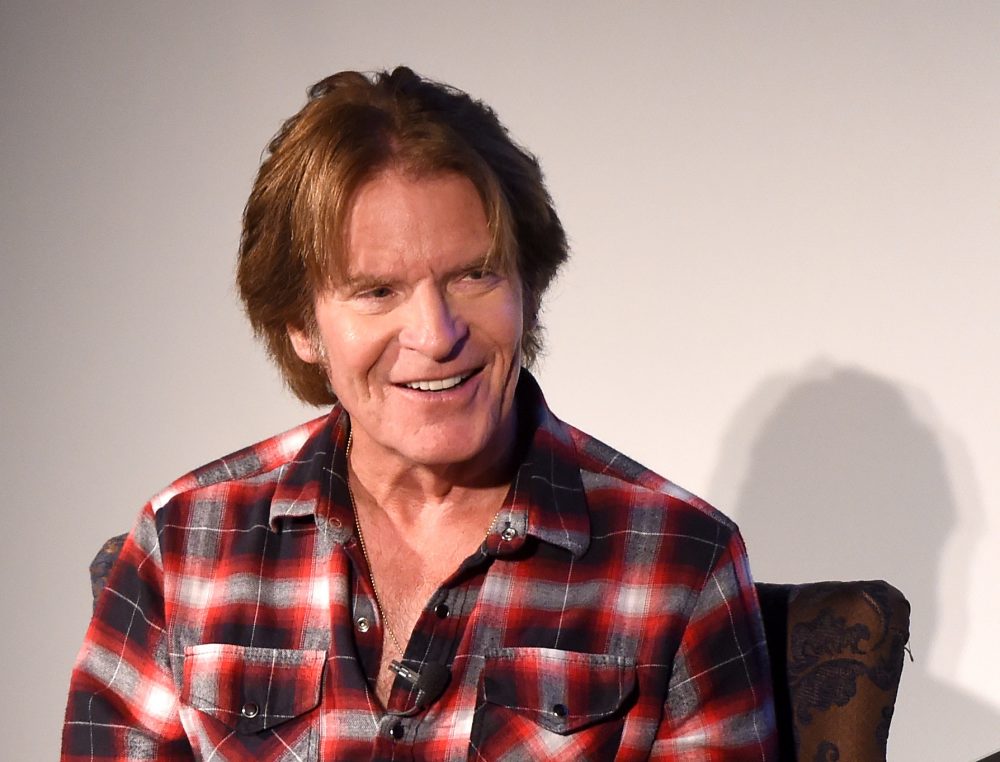
“Longshot” is John Fogerty grinning into the headwind—an underdog’s love-song that knows the odds, yet keeps throwing its heart forward anyway.
“Longshot” closes John Fogerty’s album Revival, released October 2, 2007, and that placement is the first clue to its meaning: it’s the last word after the rallying cries, the hard riffs, and the record’s sharper social conscience. Revival itself arrived with a tangible, measurable welcome—debuting at No. 14 on the Billboard 200, which Billboard noted as Fogerty’s highest-charting Billboard 200 debut at the time. So even before we talk romance or metaphor, the “ranking at release” story is clear: the album made a strong entrance, while “Longshot”—not released as a headline single—did its work in a quieter, more intimate way, as a closer you only truly appreciate once you’ve traveled the whole album road.
That context matters because Revival wasn’t a casual record. It was Fogerty’s first new album in a few years and his continued creative life after rejoining Fantasy/Concord—a late-career moment when he sounded not preserved, but re-lit. The album includes explicit political anger—two tracks are widely identified as protests against the Bush administration and the Iraq War—and then, after all that heat, Fogerty ends with “Longshot,” a song that turns away from headlines and back toward the human scale.
The story behind “Longshot” is refreshingly unpretentious. In a radio interview with Jim Ladd (KLOS, Los Angeles, September 27, 2007), Fogerty reportedly said the “message” wasn’t as important as the attitude and the groove—and he framed the song as a semi-humorous hard rocker about a working-class guy chasing a romance he suspects won’t go far… hence, a “longshot.” That’s classic Fogerty, in a way: the man who once hid apocalypse under a sing-along melody understands that sometimes the feel is the meaning. The riff carries the truth before the lyric finishes the sentence.
Listen to the opening lines (without needing to quote them in full) and you can hear the character Fogerty’s sketching: not a power-broker, not a polished winner, not someone who “walks with the president” or has “big shots” on speed dial. This narrator is all rough edges and plainspoken pride, trying to talk himself into courage. It’s funny, yes—but it’s also tender. Because comedy is often how a person protects the softest part of themselves: the part that still hopes.
Musically, “Longshot” plays like a lean, road-ready rocker—Fogerty sounding amused and fired up, as if he’s daring fate to laugh first. Reviews at the time noticed the closer’s punch. Uncut, for example, called “Longshot” a “valiant finale,” even describing it as a kind of Fogerty mission statement delivered with cheek and whip-crack humor. And there’s a practical reason it lands so sharply at the end: Revival has already taken you through protest, nostalgia, and grit; by the time “Longshot” arrives, you’re ready for something personal that still moves like a bar-band ignition.
The recording details also support that “working man” stance. On Revival, Fogerty wrote, arranged, and produced the material himself, and the album was recorded at NRG Recording in North Hollywood (among other studios). For “Longshot,” the credits list backing vocals by Julia Waters, Maxine Waters, and Oren Waters—voices with gospel-and-soul history that can turn a simple chorus into something communal, like friends leaning in behind you when you’re about to take the risk.
So what does “Longshot” mean—in that deeper, older sense where a song becomes more than its plot?
It’s about the dignity of trying when you’re not “supposed” to win. It’s about knowing you don’t have pedigree, money, or leverage—and deciding you’ll still speak your desire out loud. That’s why the title hits so well: a “longshot” is someone the world doesn’t expect much from. But a longshot is also someone who still has a chance, however slim, because they’re still in the race. In Fogerty’s voice, that becomes a form of faith—not religious faith, but the stubborn everyday kind: the faith that your sincerity might count for something in a world that loves status.
And as the album closer, “Longshot” becomes a final reframing of Revival itself. After the political fumes and the cultural noise, Fogerty ends on a human gamble—because the world, at its loudest, can make you forget that most lives are lived in smaller rooms: a conversation, a glance, a moment when you decide whether to risk rejection or settle for safety.
That’s the bell-like echo “Longshot” leaves behind. Not triumph. Not defeat. Just that familiar, brave impulse: I know the odds… but I’m going to try anyway.